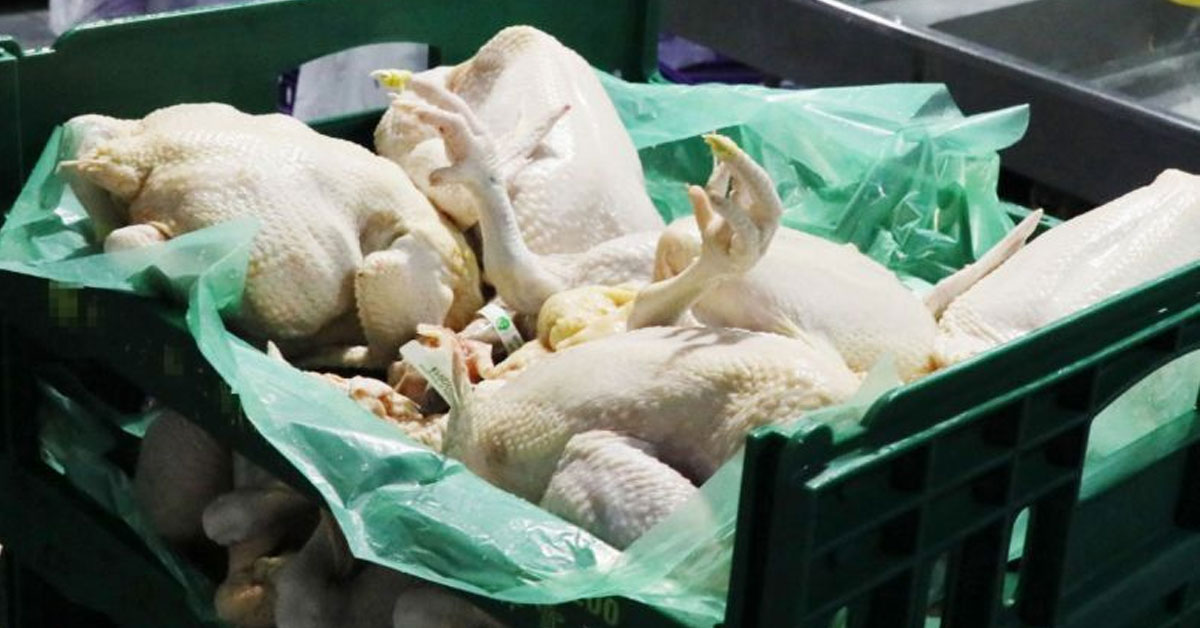A friend of mine once sent me a message saying “Drinking beer can kill the coronavirus“.
In response, I said that this was clearly not true, and if it were, hospitals all over the world would be full of alcoholics.
“But why would someone send me something like that if it wasn’t true?”, he asked.
“Well, for the same reason you sent it to me”, I replied.
You see, dear reader, people don’t verify every single message they receive before they forward it to other people.
And while not everyone is a liar, it’s good to take every forwarded message with a huge bowl of salt.
SFA Clarifies That S’pore Did Not Import Poultry From Johor Farms With Bird Flu
Messages have been circulating on WhatsApp and social media claiming that a poultry farm in Pontian has been affected by bird flu.
One message also alleges that the farm’s poultry was slaughtered and sent to Singapore in two lorries.
But the Singapore Food Agency (SFA) has come out and said that this is FAKE NEWS.

Join our telegram channel for more entertaining and informative articles at https://t.me/goodyfeedsg or download the Goody Feed app here: https://goodyfeed.com/app/
In a Facebook post on Monday (16 Mar), the agency said that it does not import chilled or frozen poultry from farms in Pontian because there is no poultry slaughterhouse in Pontian accredited by SFA.
Only SFA-accredited slaughterhouses are allowed to export frozen poultry from Malaysia to Singapore.
While live poultry can be imported from approved farms in Pontian, these imports must also be accompanied by valid health certificates issued by the Department of Veterinary Services in Malaysia.
They are also subjected to border inspections by the National Parks Board’s Animal Veterinary Service to ensure poultry are healthy before import. SFA will conduct sampling and testing as well.
So far, no avian influenza has been detected in poultry from Malaysia, said SFA.
Tips to help prevent the spread of rumours and fake news
But, you may ask, how the hell am I supposed to know when a message contains false information?
Well, there are several questions you have to ask yourself:
1. Who wrote it?
Many fake messages, especially forwarded ones, don’t indicate who wrote the message. If you don’t know who wrote it, how can you trust it?
So, before you share the message, ask the sender who the author and source are, and double-check the facts.
2. Can I verify the claims?
Many fake messages don’t give sources for their claims, or use unreliable sources like hoax news sites. Some fakes say they come from a trusted source, such as a real news site – but they’re lying.
So, before you share, ask the sender if the same claim has been reported on any trusted news sites, and verify the claims.
3. Does the info make me scared or angry?
Many fake messages try to make us scared or angry about something. They can be shocking claims about crime or kidnapping, about people from a different country or racial group, or about new government policies.
4. Does it include shocking pictures, video or audio?
Many fake messages use pictures, video, or audio to trick us. These could be edited to be misleading. They could also be taken from a different event in another time or place.
5. Am I sure this is not a hoax?
Many fake messages can be checked out online. You can search for reliable news sites or fact-checking websites such as Snopes.com.
So, please, dear reader, don’t share information unless you are sure it’s true.
With this Covid-19 outbreak, misinformation could lead to someone doing something incredibly stupid to prevent or “cure” the disease.



